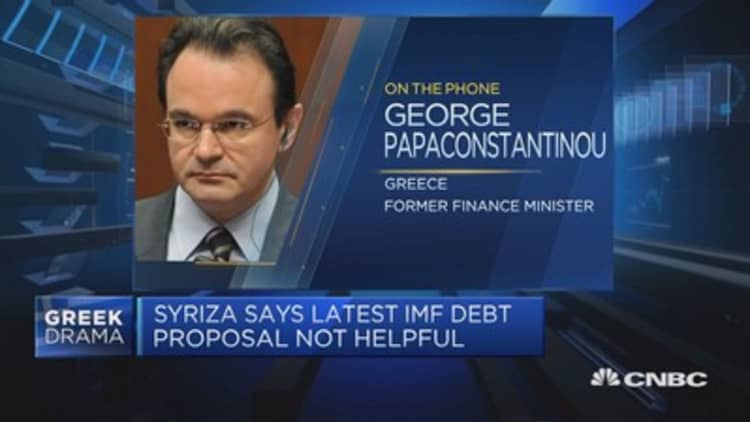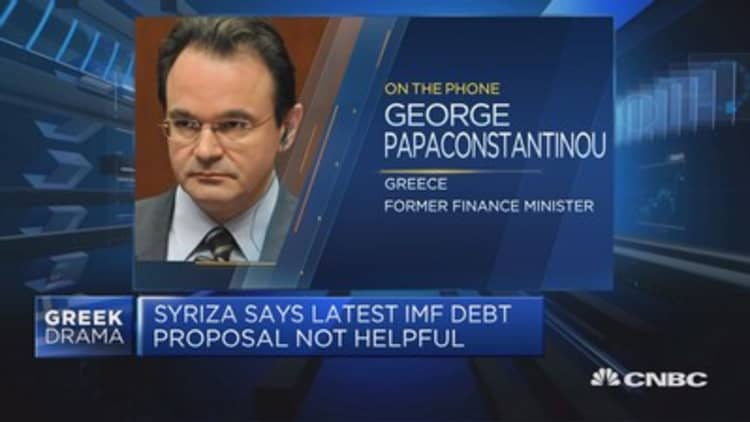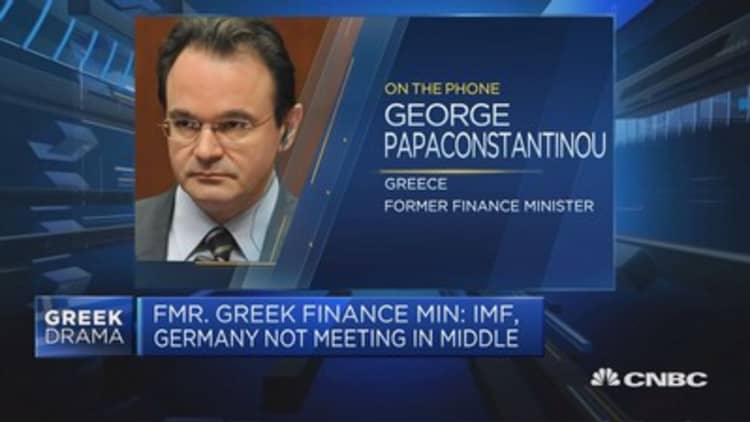
Germany is to blame for the fact that Greece is still waiting for creditors to deliver on their debt relief promises, a former Greek finance minister told CNBC on Wednesday.
More than half-way through its third bailout program, Greece still doesn't have a clue about how its sovereign debt will be restructured. Debt relief measures could have been spelled out at a meeting last month, but the upcoming elections in Germany are proving to be an obstacle, according to many market watchers.
"We seem to be caught between competing demands and priorities from the IMF (International Monetary Fund) on one side and Germany on the other," George Papaconstantinou, former finance minister of Greece said.
He explained that if Germany would have agreed at a meeting last month to define debt relief for Greece this would have allowed the IMF to join the bailout and give some cash to Greece.

"Neither of the two sides made the necessary steps to meet somewhere in the middle, Germany has an election in September so (Finance Minister) Wolfgang Schaeuble didn't want to say it clearly, that yes there would some kind of debt relief," Papaconstantinou said.
Germany has told its electorate that the IMF would be part of the 86 billion euro ($96.8 billion) bailout program to Greece. Though IMF money is more expensive for Greece, the enrolment of the Fund gives more credibility to the reforms demanded by creditors. At the same time, there's a widespread belief among German taxpayers that they have given too much money to Athens and giving it debt relief would be accentuating that problem. An IMF official told CNBC at the end of May that the impasse on Greek debt could easily be overcome with a phone call between Germany's Chancellor Angela Merkel and the IMF's Managing Director Christine Lagarde.
Meanwhile, Papaconstantinou told CNBC that he foresees an agreement in principle in which the IMF joins the program but only disburses money in the summer of 2018 when the German elections are out of the way and debt measures have been outlined.
Christine Lagarde, managing director of the IMF, offered a compromise earlier this week in which the IMF would stay on board in the bailout, as Germany wants, but not disburse until debt relief measures are clarified. European creditors, the IMF and Greece are scheduled to hold fresh talks on Greece's debt next week at a meeting in Luxembourg. Until a solution is found, the Greek economy will be the weakest link.

Papaconstantinou explained that delaying debt relief makes it much harder for the European Central Bank to consider whether to include Greece in its quantitative easing program and therefore the road until Greece is able to issue sovereign debt again – and borrowing money for itself - becomes longer.


